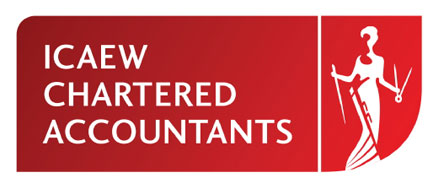Davos WEF 2012 Briefing: The World Economy
March 19,2012
Published: 1/24/2012
Over the next few days, Nariman Behravesh, IHS’s Chief Economist, will be reporting on the proceedings of the World Economic Forum in Davos, Switzerland. In this first blog he reflects on the worries in the global economic outlook.
Three Big Worries in 2012
Despite the recent calm in global financial markets, three big concerns haunt the near-term outlook.
- First, and seemingly perennial, is the uncertainty over exactly how the sovereign-debt problems of the Eurozone will be resolved.
- Second are worries about whether the troubles in China’s real-estate market will spill over into the rest of the economy—and whether the government can prevent a recession.
- Third are increasing jitters over the potential impact on oil prices of sabre-rattling by Iran.
While anxiety over the fiscal outlook for the US has not diminished, this is less of a threat in 2012 than in 2013 and beyond. Notwithstanding these worries, the world economy is still on track for a modest growth rate of 2.7% in the coming year, with no more than a 25% risk of a recession.
Global Economic Outlook
- United States—A Better 2012, But What About 2013 and Beyond? Improved optimism among US households and businesses means that the US economy is set to grow by at least 2% this year. Nevertheless, the big fiscal challenges facing the US will have to be confronted very soon after this year’s presidential election. This makes forecasting US growth beyond the end of this year particularly difficult.
- Europe—Most Likely a Mild Recession. There is little doubt now that the Eurozone is in a recession, with real GDP expected to fall 0.7% in 2012. For several countries (Italy, Spain, Greece, and Portugal), the downturn will extend through much of the year. Even Germany will be hard pressed to avoid the pain. Fiscal austerity, very tight credit conditions, and fragile confidence are afflicting the majority of European economies—although a weak euro is providing some relief.
- China—Can Government Reverse Course Fast Enough to Prevent a Hard Landing? China has been hit by a “double whammy”. Exports and domestic demand are decelerating simultaneously—the latter because of problems in the real-estate sector. So far, the government has reacted cautiously, only cutting the required reserve ratio. However, it may have to move more aggressively (such as by cutting interest rates) if large numbers of property developers run into trouble and non-performing loans become a much bigger problem.
- Other Large Emerging Markets—Momentum Is Slowing, But Still Strong. A weaker global recovery and monetary tightening over the past year have taken their toll on emerging markets’ growth. Overall, emerging market growth is expected to be sustained in 2012, albeit at a more modest pace. Domestic demand remains robust (thanks to lower food prices), and with lower inflation there is room for both monetary and fiscal stimulus in many countries.
- Oil Market Jitters Likely to Dominate the Headlines. Commodity market risks remain concentrated on the downside, because of the unsettled debt situation in the Eurozone and the potential for a sharper slowdown in China. In oil markets, however, these downside risks are offset by geopolitical concerns, including the stand-off between Iran and the West over the former’s nuclear weapons programme, growing concerns over the health of the Saudi king and the possibility of a troublesome succession, and ongoing unrest from the Arab Spring.
- Monetary Policy—ECB Remains Under the Spotlight. With the inflationary threat receding, most central banks are now focused on providing more liquidity, as needed, to counter any further weakness in growth or any unintended tightening of credit from Europe’s banking problems. Crucially, in late December, the ECB provided three-year liquidity to European banks to the tune of EUR489 billion. Unfortunately, banks have been hoarding this cash rather than lending it or buying more sovereign bonds (as the ECB had hoped). This means that the ECB will probably have to do more in the coming months—including buying more sovereign bonds itself, despite German opposition.
- Currency Markets—More (Different) Tensions Ahead? While foreign-exchange fundamentals would suggest secular strength for many emerging market currencies, the recent financial turmoil has precipitated a flight of capital and significant weakness in these currencies. This has reduced talk of currency “wars” in some quarters. The exception to all this has been the Chinese renminbi. If China’s growth weakens any further, the government may decide to let the renminbi depreciate—or keep it steady, at a minimum. Such a move could raise tensions with the US again.
- Politics—the Real Wild Card of 2012. This year, there will be elections and political transitions in a great many countries, including the US, China, France, Russia, South Korea, Taiwan, Egypt, Greece, Slovakia, Finland, and Venezuela. Poor political leadership in the US and Europe contributed to the financial market volatility last year. Chances are better than even that politics in the coming year will continue to be “a part of the problem rather than a part of the solution”.
Bottom Line: Economic fundamentals point to only a mild global slowdown this year. There is a risk, however, that a dangerous mixture of financial market anxiety, political paralysis, and policy mistakes could darken the picture.
|
Real GDP Growth (% change) |
||||||
|
2009 |
2010 |
2011 |
2012 |
2013 |
2014 |
|
|
US |
-3.5 |
3.0 |
1.8 |
2.0 |
2.4 |
3.4 |
|
Eurozone |
-4.2 |
1.8 |
1.5 |
-0.7 |
0.9 |
1.7 |
|
United Kingdom |
-4.4 |
2.1 |
0.9 |
0.3 |
1.6 |
2.3 |
|
Japan |
-5.5 |
4.5 |
-0.7 |
2.9 |
2.9 |
2.0 |
|
China |
9.2 |
10.4 |
9.2 |
7.9 |
8.6 |
8.5 |
|
India |
9.1 |
8.8 |
6.8 |
7.2 |
8.2 |
8.4 |
|
Brazil |
-0.3 |
7.5 |
2.9 |
3.2 |
5.0 |
5.8 |
|
Russia |
-7.8 |
4.0 |
4.0 |
3.7 |
3.9 |
3.9 |
|
World |
-2.0 |
4.3 |
3.0 |
2.7 |
3.7 |
4.2 |



